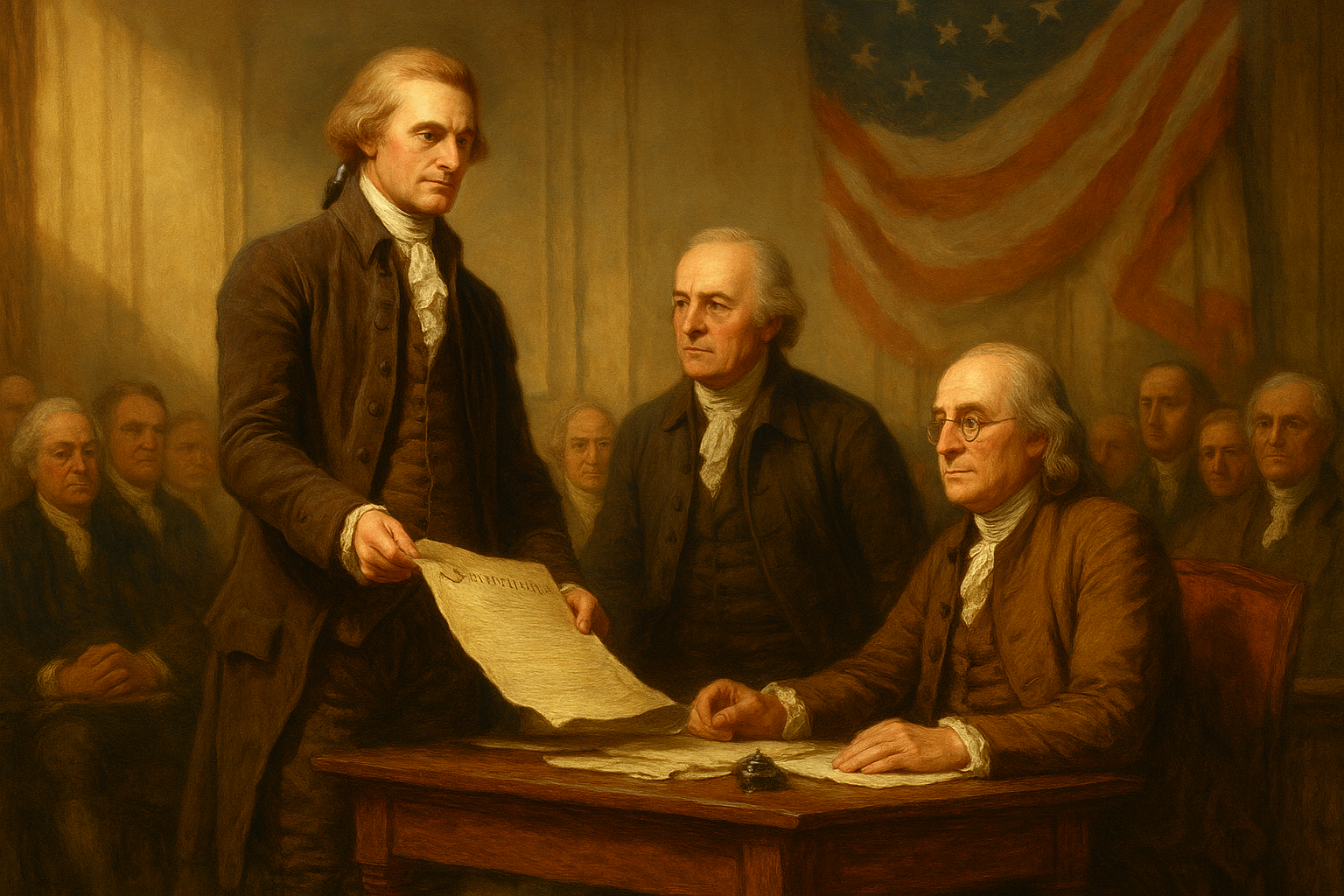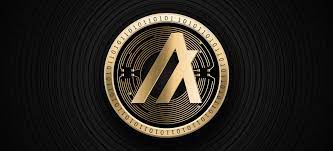“We have it in our power to begin the world over again.” -Thomas Paine
On July 4th, 1776, a group of farmers, merchants, lawyers, and revolutionaries signed their names to what might be the boldest breakup letter in human history. The Declaration of Independence wasn’t just a document—it was a seismic shift in worldview. It was the formal rejection of a monarchy and the divine right of kings. It was the American people’s “No” to tyranny—and their resounding “Yes” to individual liberty.
Context: Empires and Upstarts
The American colonies had been under British rule for over 150 years. They paid taxes to a distant king, fought his wars, and obeyed laws crafted by people across an ocean. The British Crown—specifically King George III—believed he had divine authority to rule. The colonies were his property. His word was law.
But the spirit of independence was already boiling. Enlightenment thinking had taken root. The works of Locke, Montesquieu, and Paine whispered revolutionary ideas: rights come from God, not government; liberty is the natural state of man; power belongs to the people.
Britain, desperate to maintain its grip, doubled down—more taxes, more soldiers, more control. Eventually, the colonies had enough. And instead of begging for better treatment, they did something unthinkable: they declared themselves free.
The Document: Words That Shook an Empire
Drafted by a committee of five—Thomas Jefferson, John Adams, Benjamin Franklin, Roger Sherman, and Robert Livingston—the Declaration was primarily the work of Jefferson. In just over 1,300 words, he crystallized the American philosophy of liberty.
Here’s what it declared:
All men are created equal
That means no divine right, no royal bloodlines, no elite caste of rulers. No King. Ever again.
They are endowed by their Creator with certain unalienable Rights
Rights don’t come from government. Government’s job is to protect rights that already exist.
Among these are Life, Liberty, and the Pursuit of Happiness
Not entitlements. Not guarantees. But the right to try, to strive, to live free without interference.
Governments derive their just powers from the consent of the governed
The people are the source of all legitimate power. That flips monarchy on its head.
Whenever any form of government becomes destructive to these ends, it is the Right of the People to alter or to abolish it
Translation: if a government becomes a threat to liberty, burn it down and build a better one.
Then came the grievances—27 of them. A detailed list of King George’s abuses: taxation without representation, quartering troops, dissolving colonial legislatures, obstructing justice, waging war against his own subjects. It was a litany of tyranny. And it ended with a simple, powerful conclusion: we are free.

The Signers: Pledging Lives, Fortunes, and Sacred Honor
Fifty-six men signed the Declaration. They weren’t elites with nothing to lose—they were businessmen, scholars, and farmers with everything to lose. They knew this wasn’t just rhetoric. This was treason. If the Revolution failed, they’d be hanged.
And yet they signed anyway.
They weren’t declaring independence only for themselves. They were putting their lives on the line for an idea: that government exists to serve the individual—not the other way around. That freedom is worth the risk.
No King, No Chains
Let’s be clear: the Declaration wasn’t just a rejection of George III. It was a rejection of all kings. Of all systems that place power over liberty. Of all institutions that presume to rule rather than serve.
It was a statement to the world that people are born to be free. That liberty is not radical—it’s natural. And that any government not grounded in consent and limited by law is illegitimate.
At Of The Free Market, we don’t just honor this document as a historical artifact. We live by its principles. The free market is more than a method of exchange—it’s an extension of liberty. It’s the practical expression of the truth that individuals, not institutions, know best how to pursue their happiness.
Conclusion: The Work Isn’t Done
The Declaration of Independence lit the fuse. But the fight for freedom is ongoing. Every generation must guard it. Every citizen must understand it. The moment we forget the words of Jefferson, Adams, and Franklin is the moment we risk falling back into chains—maybe not gilded crowns and powdered wigs, but digital control, economic serfdom, and bureaucratic rule.
Remember: Liberty wasn’t granted by government. It was declared by individuals.
Let us never forget what they signed, what they risked, and what they started. Hope y’all had a happy 4th.
No King. No Masters. Only Liberty.




